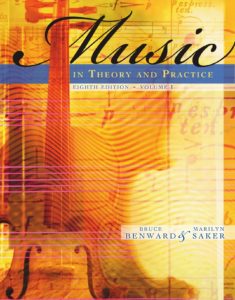Browse in the Library:
A new study suggests that listening to happy music promotes more divergent thinking – a key element of creativity.
How Music Helps Us Be More Creative. In today’s world, creative thinking is needed more than ever. Not only do many businesses seek creative minds to fill their ranks, but the kinds of complex social problems we face could also use a good dose of creativity.
Luckily, creativity is not reserved for artists and geniuses alone. Modern science suggests that we all have the cognitive capacity to come up with original ideas—something researchers call “divergent thinking.” And we can all select from a series of ideas the one most likely to be successful, which researchers call “convergent thinking.”
Though we may not all be equally accomplished at these kinds of thinking, we can all become more skillful in creative problem-solving—whether the problems we face involve figuring out technological challenges at work or the next steps to take in creating a new painting. The question is how.

One new study explores music as a source of creativity. Since music has been shown to improve cognition and enhance learning and memory in other studies, it makes sense that perhaps it has an impact on creative thinking, too.
In the experiment, participants tried creativity exercises that measured divergent or convergent thinking while being exposed to either silence (the control scenario) or classical music that evoked four distinct emotional states: happy, calm, sad, or anxious.
After comparing participant performance on divergent and convergent thinking in the five scenarios, the researchers found that participants who’d listened to happy music had significantly higher scores on divergent thinking than those who’d performed in silence. In other words, they came up with more total ideas, and more creative and innovative ideas (as rated by people who were unfamiliar with the study’s aim). The other types of music did not have this impact.
“The results suggest that listening to happy music increases performance on overall divergent thinking,” write the authors, suggesting that it enhances the cognitive flexibility needed to come up with innovative solutions—the ability to switch between different concepts and perspectives, rather than seeing the problem from a rigid point of view.
Interestingly, whether or not the participants “liked” the music had no impact on their performance, suggesting that the benefits don’t come from simply enjoying music. And none of the types of music had an impact on convergent thinking, which requires coming up with a right answer rather than opening your mind to many potential ideas.
“The increase in divergent but not convergent thinking after listening to happy music may be explained by the fact that the convergent tasks rely less on fluency and flexibility, but on finding one correct answer,” write the authors.

It may also have to do with the mood created by the happy music. After all, happiness is considered to be a positive emotion that, according to researcher Barbara Fredrickson, broadens our mindset and enhances our desire to explore and play. Though the researchers didn’t actually analyze mood changes, research suggests a link between positive mood and creativity, suggesting that this may be the underlying mechanism behind the benefits of happy music.
Whatever the case, the results suggest that people may want to listen to happy music while they work—particularly if they need to come up with new ways of looking at a particular problem. As the authors conclude, “music listening may be useful to promote creative thinking in inexpensive and efficient ways in various scientific, educational, and organizational settings when creative thinking is needed.”

